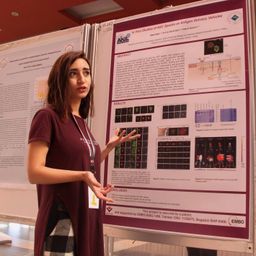Drug repurposing for Duchenne Muscular Dystrophy using phenotype-based drug screening
My Session Status
Drug repurposing for Duchenne Muscular Dystrophyusing phenotype-based drug screening
Carrillo E1,2, Doyle J.J1,2, Parker J.A1,2 and Samarut É1,2
1Department of
Neurosciences, University of Montréal Hospital Research Center (CRCHUM),
Québec, Canada
2Modelis inc.,
Montréal, Québec, Canada
Duchenne Muscular Dystrophy (DMD) is a rare genetic disorder and the most
frequent among muscular diseases. It is due to the deficiency of a protein
called dystrophin and is characterized by progressive weakness and degeneration
of the skeletal muscles. Since no cure for DMD has yet been found, there is an
urgent need to identify new therapies. With this aim, we believe that drug
repurposing is a powerful alternative approach to bring potential new therapies
to the bedside.
Our drug discovery approach is based on unbiased phenotype-based screening of already approved molecules using simple DMD genetic avatars: worms and fish. Using those, we screened more than 4,500 molecules against the motility defect of dmd-mutant worms and identified 20 that could significantly ameliorate their symptoms. Now we are validating their effect on dmd-mutant zebrafish using a combination of muscle integrity assay and movement quantification. Interestingly, we identified one lead compound that is able to significantly improve skeletal muscle integrity of dmd-mutant zebrafish after chronic exposure. We are now confirming the efficacy of our lead compound to restore muscle defects and prolong survival of dmd-mutant zebrafish. The next step will be to validate its efficacy in a mouse model of DMD and eventually to translate up to the clinic.








Discussion